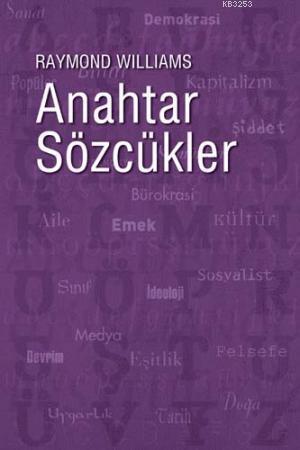What do you think?
Rate this book


415 pages, Paperback
First published January 1, 1975
'Nature' is perhaps the most complex word in the language. It is relatively easy to distinguish three areas of meaning:
(i) the essential quantity and character of something;
(ii) the inherent force which directs either the world or human beings or both;
(iii) the material world itself, taken as including or not including human beings.
Yet it is evident that within (ii) and (iii), though the area of reference is broadly clear, precise meanings are variable and at times even opposed. The historical development of the word through these three senses is important, but it is also significant that all three senses, and the main variations and alternatives within the two most difficult of them, are still active and widespread in contemporary usage. was (i), the essential character and quality of something. Nature is thus one of several important words, including culture, which began as descriptions of a quality or process, immediately defined by a specific reference, but later became independent nouns...
The common phrase human nature, often crucial in important kinds of argument, can contain, without clearly demonstrating it, any of the three main senses and indeed the main variations and alternatives. There is a relatively neutral use in sense (i): that it is an essential quality and characteristic of human beings to do something (though the something that is specified may of course be controversial). But in many uses the descriptive (and hence verifiable or falsifiable) character of sense (i) is less prominent than the very different kind of statement which depends on sense (ii), the directing inherent force, or one of the variants of sense (iii), a fixed property of the material world, in this case ‘natural man’. What has also to be noticed in the relation between sense (i) and senses (ii) and (iii) is, more generally, that sense (i), by definition, is a specific singular - the nature of something, whereas senses (ii) and (iii), in almost all their uses, are abstract singulars - the nature of all things having become singular nature or Nature...
There was then a practice of shifting use, as in Shakespeare’s Lear:Allow not nature more than nature needs,
Man’s life’s as cheap as beast’s ...
one daughter / Who redeems nature from the general curse
Which twain have brought her to.
That nature, which contemns its origin
Cannot be border’d certain in itself...
It could seem wrong to inquire into the workings of an absolute monarch, or of a minister of God. But a formula was arrived at: to understand the creation was to praise the Creator, seeing absolute power through contingent works. In practice the formula became lip-service and was then forgotten. Paralleling political changes, nature was altered from an absolute to a constitutional monarch, with a new kind of emphasis on natural laws. Nature, in C18 and C19, was often in effect personified as a constitutional lawyer. The laws came from somewhere, and this was variously but often indifferently defined; most practical attention was given to interpreting and classifying the laws, making predictions from precedents, discovering or reviving forgotten statutes, and above all shaping new laws from new cases: nature not as an inherent and shaping force but as an accumulation and classification of cases.
The complexity of the word is hardly surprising, given the fundamental importance of the processes to which it refers. But since nature is a word which carries, over a very long period, many of the major variations of human thought - often, in any particular use, only implicitly yet with powerful effect on the character of the argument - it is necessary to be especially aware of its difficulty.